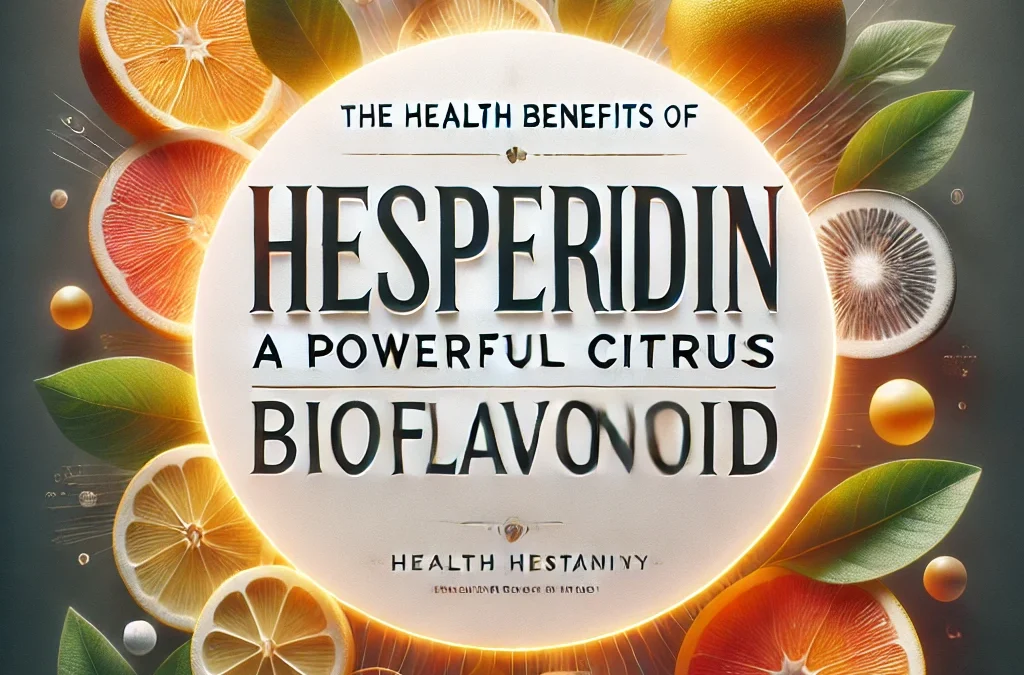Hesperidin, a naturally occurring bioflavonoid primarily found in citrus fruits such as oranges, lemons, and grapefruits, has gained attention for its potential health benefits. This potent compound has been extensively studied for its antioxidant and cardioprotective properties and ability to inhibit an immune response that contributes to an inflammatory response. This article explores the science behind hesperidin and how it contributes to overall health.
Cardiovascular Health
Hesperidin has demonstrated promising effects on cardiovascular health by improving blood vessel function and enhancing endothelial health, potentially reducing cardiovascular risk. These results suggest that hesperidin can support heart health by promoting better blood flow and reducing cardiovascular strain.
Antioxidant Effects
Oxidative stress is a major contributor to chronic health issues. Hesperidin is a powerful antioxidant that scavenges free radicals and protects cells from damage. Additionally, hesperidin has been shown to suppress pro-inflammatory cytokines.
Skin Health
Hesperidin’s antioxidant properties extend to skin health, helping to combat damage caused by ultraviolet (UV) radiation and pollution. Research suggests that hesperidin can improve skin elasticity and reduce the appearance of wrinkles by promoting collagen synthesis.
Blood Sugar Regulation
Emerging evidence suggests that hesperidin can help regulate blood sugar levels. In a randomized controlled trial, patients with type 2 diabetes who received hesperidin supplementation showed improved fasting blood glucose levels and enhanced insulin sensitivity. These effects make hesperidin a valuable bioflavonoid for metabolic health.
Cognitive Benefits
Hesperidin may also benefit brain health. Reducing inflammation and oxidative stress in the brain helps protect neurons and supports cognitive function. Research has shown that hesperidin supplementation can significantly improve cerebral blood flow, cognition, and memory performance, suggesting its potential as a neuroprotective agent.
How to Incorporate Hesperidin into Your Diet
While hesperidin is most abundant in the peel and pulp of citrus fruits, supplements are available for those seeking higher concentrations. The Brewster family (Ingredients by Nature) has spent decades working with and researching citrus bioflavonoids and should be considered the starting point for those interested in hesperidin or other citrus bioflavonoids. Consuming fresh citrus fruits, juices, or dietary supplements ensures a steady intake of this health-boosting bioflavonoid.
Hesperidin is a powerhouse bioflavonoid with numerous health benefits, from supporting cardiovascular health to promoting glowing skin and enhancing cognitive function. Backed by scientific studies, it offers a natural way to boost overall well-being. Whether through diet or supplementation, hesperidin is a worthy addition to any wellness regimen.


